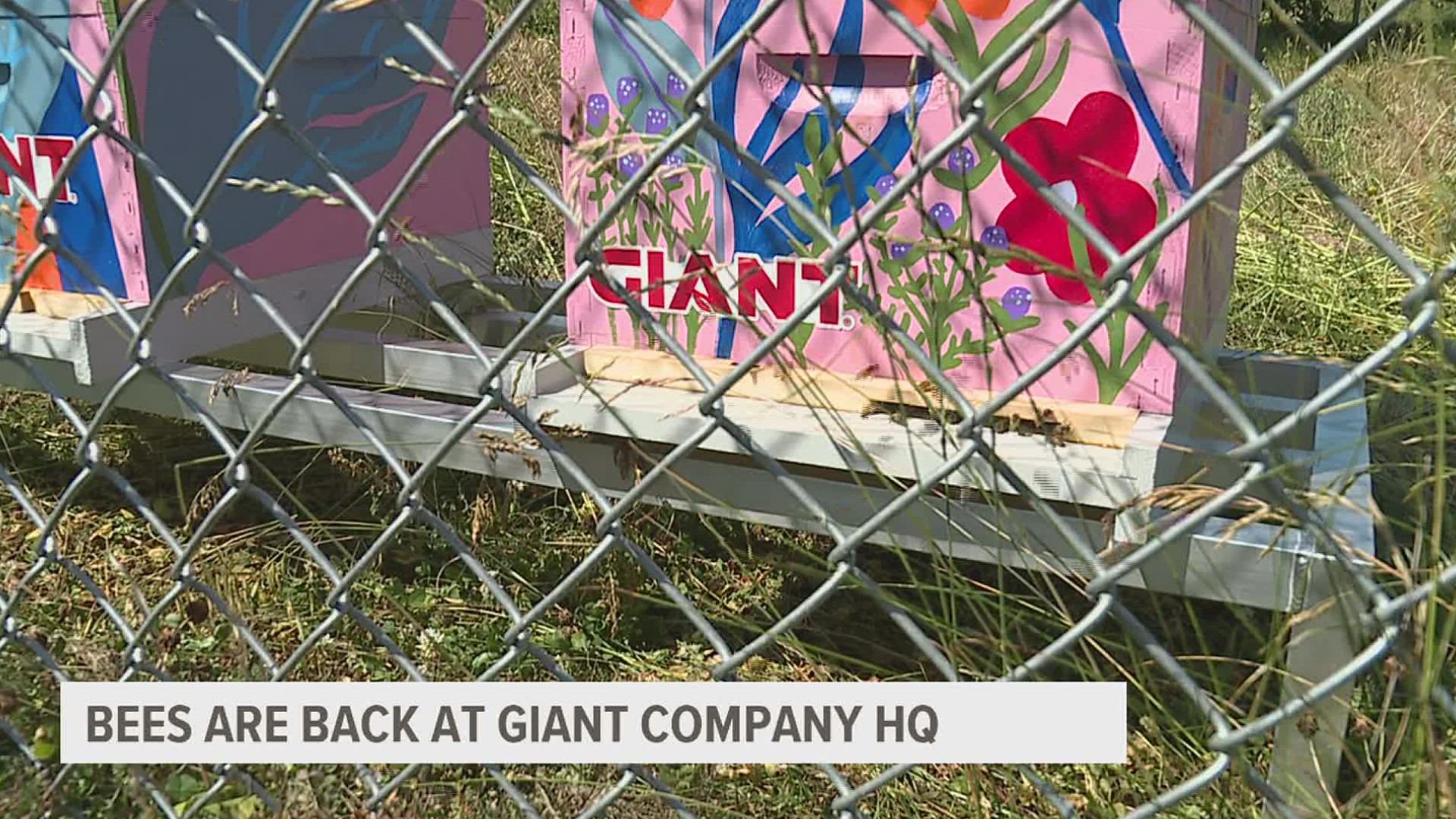CARLISLE, Pa. — The bees are back at GIANT's Company Headquarters in Carlisle.
Earlier this year, 60,000 bees were stolen from the retail giant's Carlisle headquarters. The three hives were originally brought into the company headquarters in 2020 as part of their introduction to pollinator-friendly solar fields.
Monday morning, two new beehives, housing 30,000 honeybees, have been rehomed near GIANT's seven-acre solar field, the company said.
The bees were unveiled at a press conference for the Carlisle GIANT in celebration of National Pollinator Week. The absence of the previous three beehives was addressed at the event.
"The theft of our bees and beehives in January brought to light the issue many beekeepers around the country are facing, not only have bee populations been declining for decades, now they are being stolen," said Nicholas Bertram, President of The Giant Company.
The company plans to build to the colony over the next several months, ultimately planning on housing 450,000 honeybees in nine beehives over the next year.
"Bees and other pollinators are crucial to growing fruits and vegetables; without them, our produce department and mealtimes around the table would look much different," Bertram continued.
The GIANT Company, in partnership with Planet Bee Foundation, also awarded grants to five central Pennsylvania beekeepers, totaling $10,000. The funds will be used by beekeepers to replace bee colonies, rebuild beehives, and continue research.
"This grant will allow me to enhance bee breeding efforts, which ultimately enable better survival rates and provide strong queens to other local beekeepers in the Midstate," said John Patterson, a local beekeeper.
Members of the Pennsylvania Department of Agriculture were also present at the press conference. "One out of every three bites of food we eat is thanks to pollinators, including bees, and their role in promoting biodiversity and plant health within our greater food system," said Pa. Department of Agriculture Secretary Russell Redding.
Celebrated every year during the third week of June, National Pollinator Week is a nationally recognized celebration that aims to acknowledge the critical ecosystem support provided by honeybees, birds, butterflies, bats, beetles, moths, wasps, and flies.

